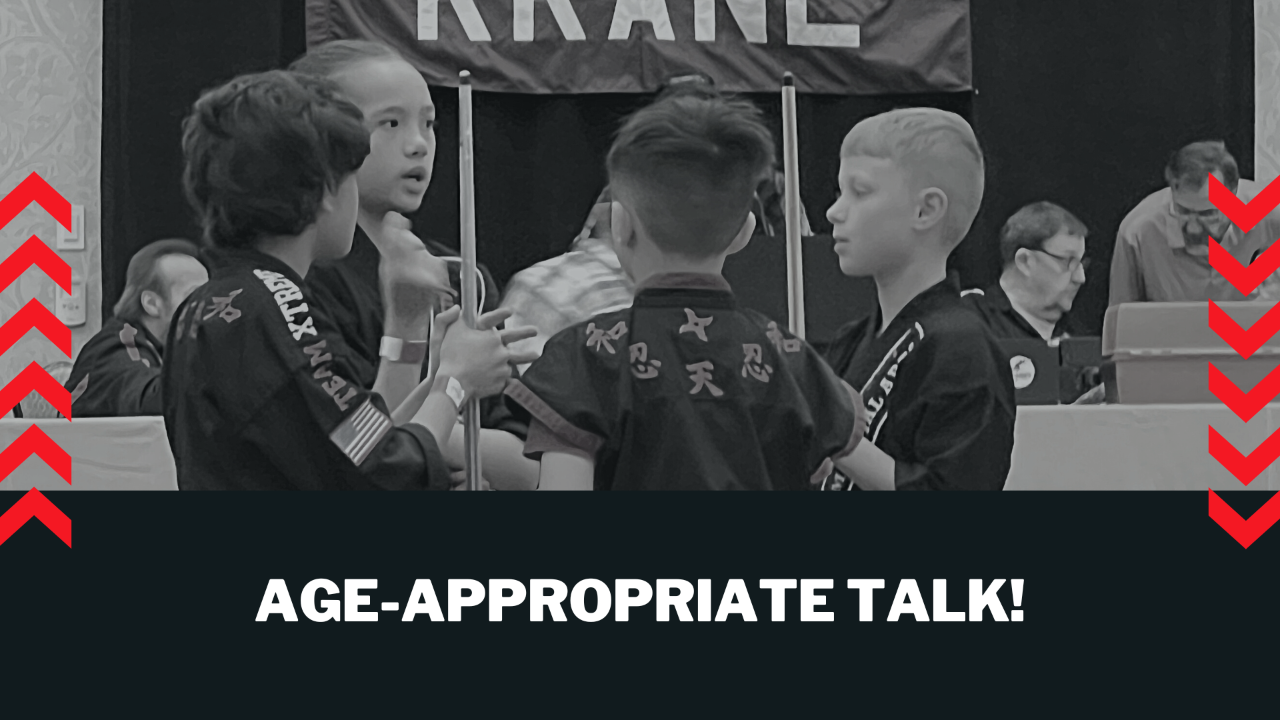Age-Appropriate Talk!

I am sure that most of us have experienced those moments when a child says something that catches us off-guard - a swear word, a mean phrase, or something that typically is not said by someone their age. Where does language like that come from?
Brain development in children ages birth to 6 years is the fastest rate of brain growth in the human life span. A child’s brain is like a sponge, soaking up everything they see, hear, taste, smell, and touch. Ages 3-6 is also when children like to test boundaries to learn what is and is not acceptable.
Think about the many environments that our children are exposed to: home, school, bus, daycare, after-school activities, extended family, neighbors, friends, etc. Do these other people or settings provide an opportunity for our children to soak up words not meant for them to use? Absolutely!
While we cannot always control what is said in other environments, we can provide appropriate redirection to help our children learn acceptable language. PennState Extension has some helpful tips for how to do just that:
- Address the language directly and immediately. It is important to keep a straight face and remain calm. Explain to the child “we do not talk like that here.” If they ask why, provide a simple explanation, such as “those words hurt people’s feelings.” Overreacting gives the child attention that can lead to continued inappropriate talk.
- Be consistent. Being consistent in our response to inappropriate or unacceptable language teaches children a boundary. Giving inconsistent messages is confusing for children and often does not resolve the issue.
- Acknowledge appropriate language. The more that we give positive reinforcement and attention to “good” language, the more likely children are to continue using that language.
- Find the why. We all have reasons for certain behaviors. Observe the situations in which your child tends to use inappropriate language. Are they upset? Are they mimicking those around them? If we can discover why they are using those words, it helps us determine what areas need to be addressed.
- Check your environment. Before engaging in adult conversation, check to see who else is around. Children tend to hear more than we think. If your child is close by, you can either clear the room before talking, or you can use language that you wouldn’t be upset with your child repeating.
Hang in there, parents! With positive reinforcement for appropriate words and consistent messages regarding inappropriate language, your child is well on their way to learning acceptable language for their age.
